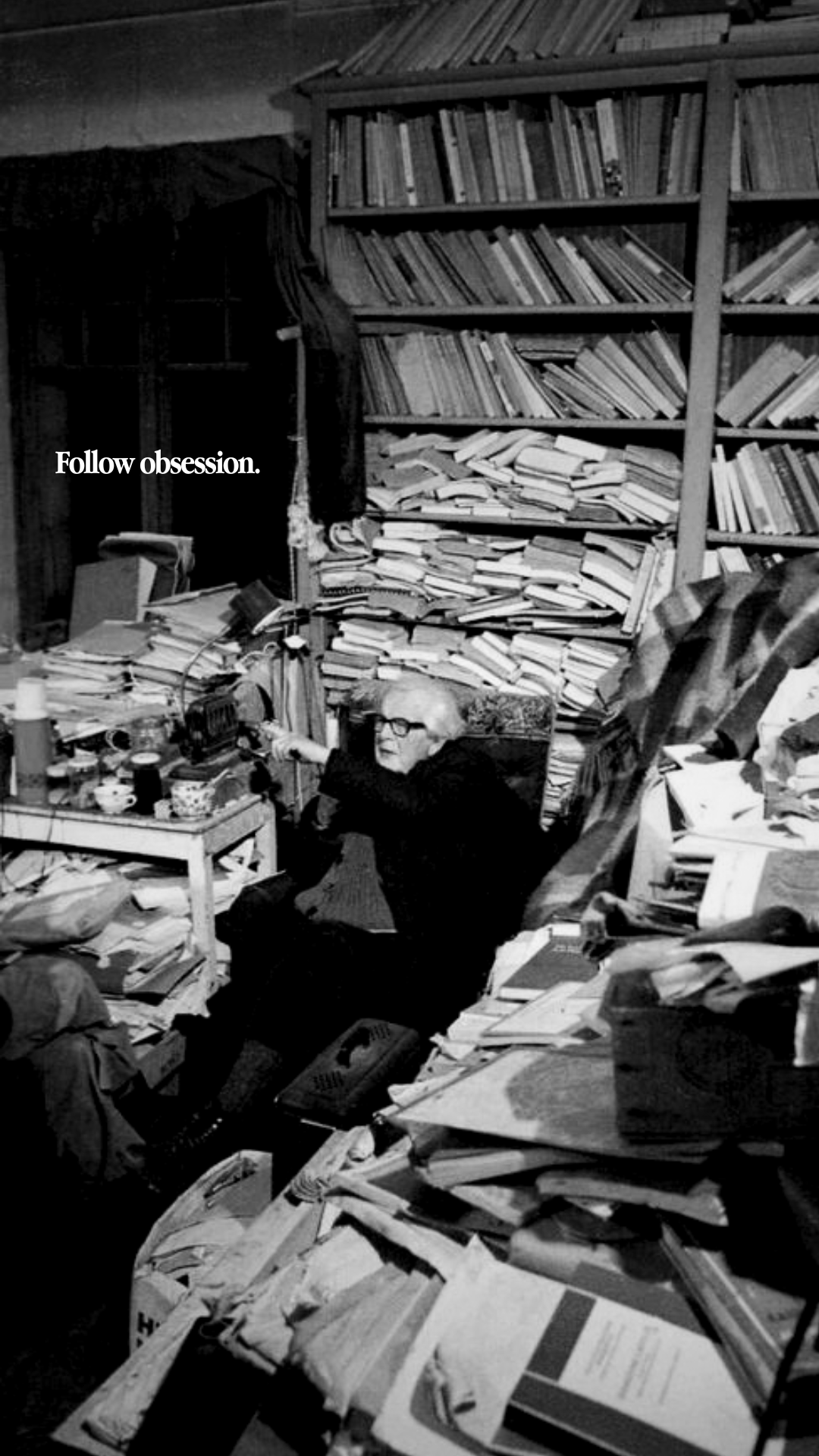"To live is to suffer..."
-Friedrich Nietzsche
Most philosophers and religious believers throughout history believe innately that life is about suffering. Nietzsche believed that surviving meant to find some sort of meaning out of that suffering. Sam Harris, an esteemed neuroscientist and modern philosopher, often gives analogous advice of the idea to pick a game you find interesting and attain mastery in the game. Whether the game you decide to pick up is medicine, finance, engineering, entrepreneurship, etc. Pick one and go all the way with it. Learn the intricacies, skill set, and get really good at your game. Leave an imprint for posterity, no matter how insignificant it may seem in the long-run.
All the greatest inventors, businessmen, scientists, investors, luminaries, innovators, industry-disrupting and impactful individuals have garnered their success from the two principles of being obsessed with something and remaining consistent with it. The formulaic approach of obsession and consistency given a long enough time frame will inevitably produce consequences, these consequences are what we interpret as success. In their prime, Warren Buffet read over 500 pages a day worth of 10-K statements, Thomas Edison famously worked and tinkered 18 hours a day, Bill Gates in the early days of Microsoft; pulled all-nighters to finish code. The pattern is evident and the formula is axiomatic. If you want to win, you have to be willing to do what others won’t. Average input equals average output. So go above and beyond, understand that the harder it is, the less people are willing to do it.
Granted, luckiness is a fair criticism of merit. Some people will never amount to anything and some will literally become famous overnight from one sensational clip or might win the lottery from a lucky ticket. The way we can cope with this inescapable truth is to always “stay cheerful in spite of your troubles” stated by Charlie Munger during a investment conference. Life is unfair and is capable of being utterly cruel but we must experience this suffering to derive any meaning from fulfillment. No matter your circumstance, keep on moving and understand that remaining bitter is plainly counter-intuitive regardless of your situation.
In the advent of modern science, we are understanding more about the health repercussions of overworking, drug abuse, and other means of pushing the limit. But, this creates a safeguard for mediocrity (in my opinion), as, people can shield insecurities about themselves onto others but making statements such as “that’s not healthy” or “you should enjoy life more”. To this, I ask; name a person of significance in all of human history who did not go through a period of imbalance in their lives. It never happened, they understood that in order to achieve, you have to be willing to sacrifice. Everyone has the same time in day but those who amount to something understand the vital importance of prioritizing what is actually important. Really analyze what you are doing with your hours in the last 7 days. Was most of your time used wisely, did you progress any closer to the goals that you promised yourself? Are you worse off or better off? Time is something most people seemingly give away without realizing before its too late.
How you do anything is how you do everything
Aristotle once said that "We are what we repeatedly do, excellence is not an act, but a habit'" which is to say that how you perform in one domain of life, no matter how trivial it may seem, translates to how to tackle more meaningful pursuits in life. For example, if you take a 4.0 GPA student at a prestigious university, chances are that student does everything with excellence. There is a strong probability that they have numerous healthy habits in addition to their effective studying. Such as daily reading, practicing an instrument, or perhaps they playing a sport regularly. They have order and discipline that drives their life. Ultimately, they do everything with excellence because they understand that how do you do anything is how you do everything.
Who can suffer the most will win.
"I don’t know how to teach it to you except that I hope suffering happens to you...", Jensen Huang, CEO of NVIDIA, when speaking with Stanford graduates. Arguably one of the most successful companies in the world currently is NVIDIA with a market cap of 3.3 trillion, NVIDIA seems to be the hardware backbone of the AI renaissance with industry leading GPU systems like the H100s, which have been restricted for selling in China. How remarkable is it that an idea discussed at a Denny’s restaurant was the inception of a multi-trillion dollar company. More about the AI race and the semiconductor industry, I highly recommend the extraordinary work from SemiAnalysis by Dylan Patel.
In Jordan Peterson’s 12 Rules For Life, there are many fantastic heuristics and mental models that help one turn their life around by adapting new ways of thinking such as holding once self accountable. One of my favorite heuristics is the community of selves. Imagine a yourself in a fourth dimensional plane; similar to the third dimension, where you can move physically and freely. Backwards, forward, and so forth. So, going back to the fourth dimension, you can move freely through time just like how you would move forward in 3D space. Furthermore, in the fourth dimensional plane, imagine a contingent timeline from birth, stretching towards the future where it obscures into darkness. Every single action you took has lead you to this very moment. Every choice, subjectively good or bad has put you in the position that you are in today. From this conclusion, you can predict the trajectory of your future based off the decisions you are making now. Are you exercising enough? Studying hard enough? Deliberately expanding your expertise? Executing on your startup idea? Whatever you infer, understand this. You are a custodian of your future self and your past selves are custodians of your present self. Do not disappoint your future self because if you do, not only will you resent yourself but you will never experience all that you could of been.
I’ll leave you with one my favorite quotes from Peterson’s book which I highly encourage you to read, “If you’re not suffering now, you will be in 5 years.”




